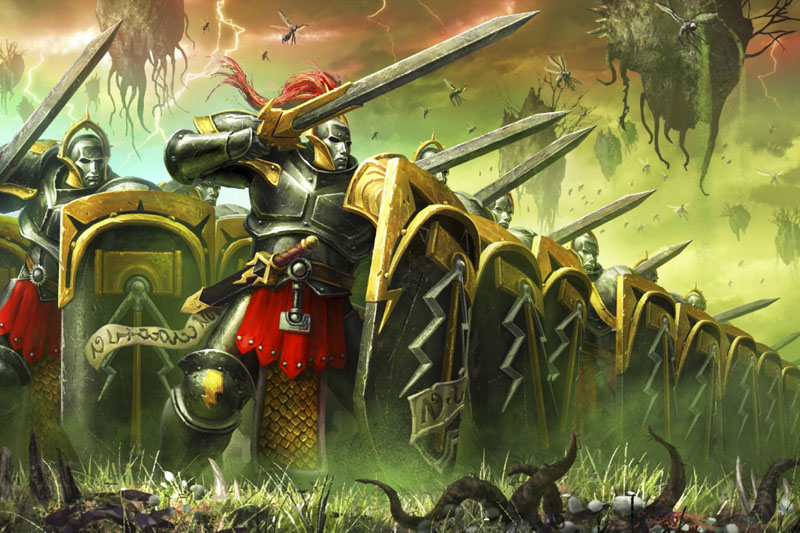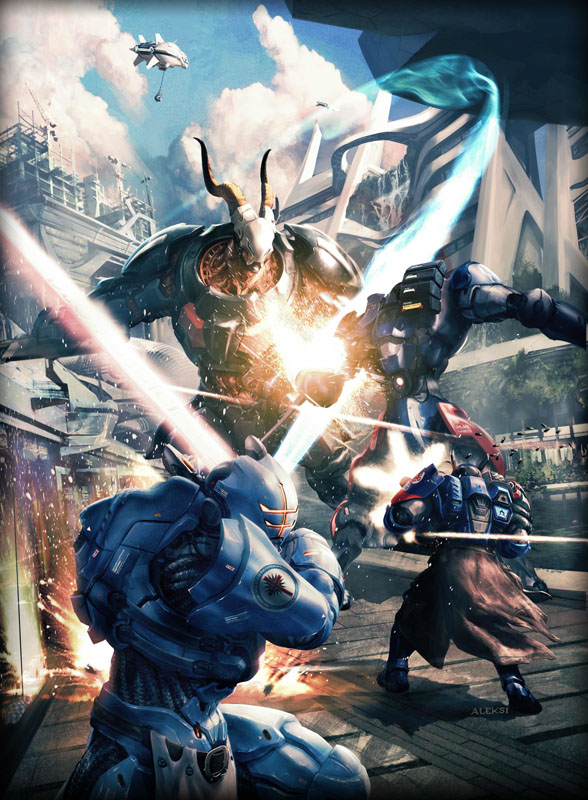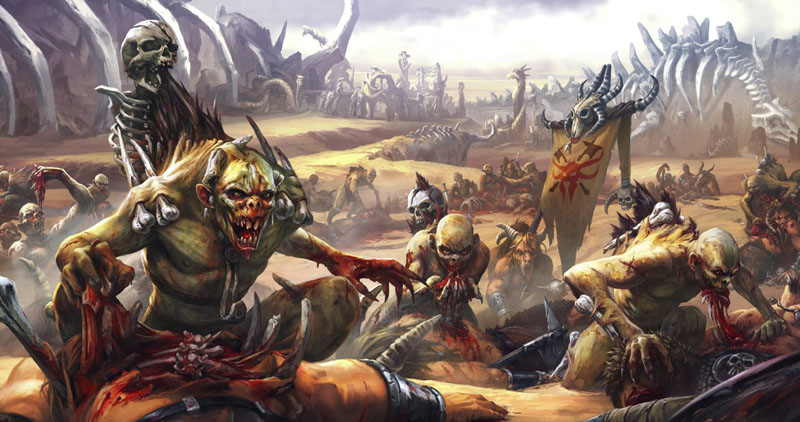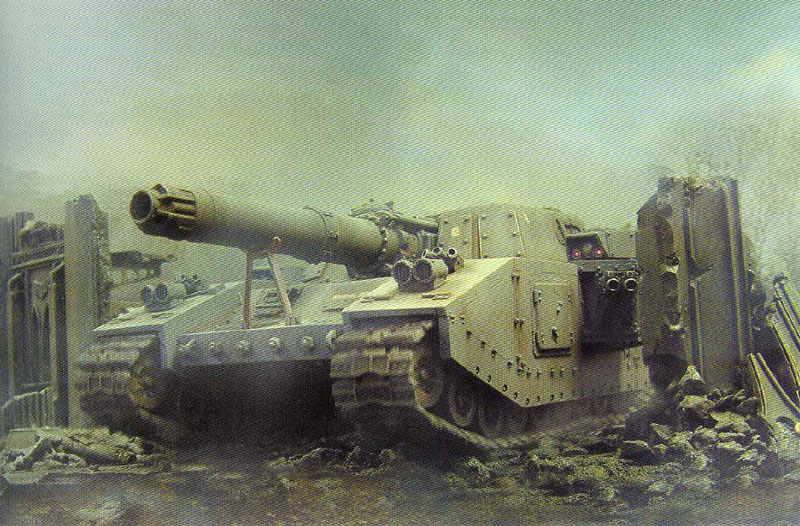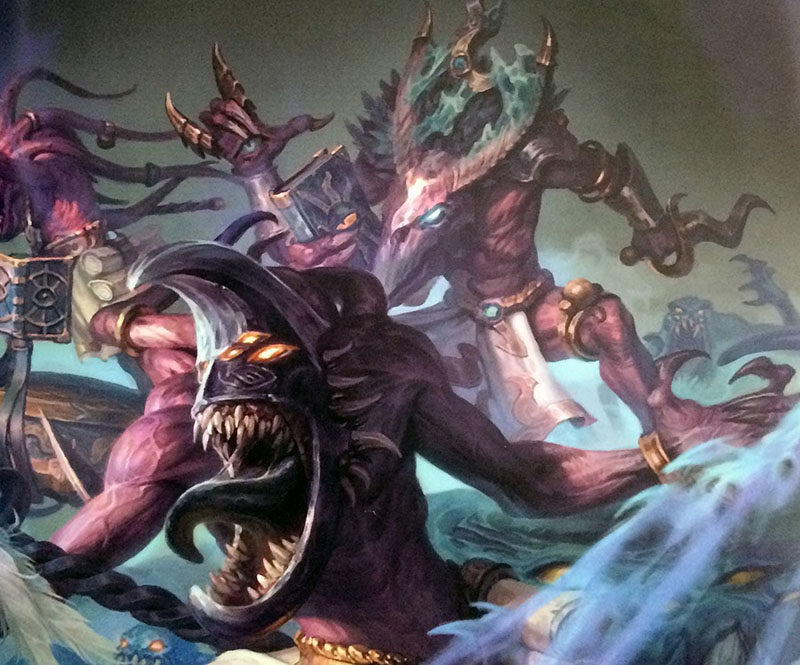We are testing different armies from the 8th edition of Warhammer 40K. There’s still a lot to try, but some thoughts have come to our heads. So, today we’ll discuss an essential part of every wargame – randomness.
Almost every wargame uses random numbers on the dice (or cards like in Malifaux). Some use classic D6, some D20, some have special dice, etc… And depending on the wargame mechanics the level of randomness can vary. Which one is the best?
We have an example of the game without randomness at all. It’s chess. Sure, it’s hard to call it a wargame. But chess doesn't lack attention and players at all, since it’s been here for thousand years, and it’s considered a sport. Even an Olympic one, starting from the next year. So, no randomness at all makes the game a sport, indeed. You are 100% sure how your figures will act and the victory depends only on your skill.
It could seem that re-playability might be low. However, chess is popular all over the world and people keep playing it. So, why don’t we expel randomness from wargames?
Well, there’s an important point of interest here – random events. They add unexpectable stuff and make the game more interesting and complex. Moreover, it adds excitement, passion, which is necessary for any wargame, since it makes people more involved, buy new miniatures and play more. So, randomness is profitable for wargame making companies.
Besides, it can be a part of the balance. Wargames are much more complicated that chess. Figures have characteristics, you can change their weapons, and they behave differently. Again – there are a lot of different armies, and not all of them are at the same power level than the others. So, the minimum required numbers on dice help to balance the power of some armies with low accuracy or something else. For example, your favorite Tau in Warhammer 40K on average hit the target on 4+, while having extraordinary firepower. Sure, they have a lot of instruments to improve their ballistic skill, but it’s a question of balance…
Well, we definitely need randomness. But too much of it reduces your role as a warlord. Yes, you choose where the unit goes and whom it attacks. However, if the model deals D6 damage, it doesn’t depend on you. So, the more D6, the less your skills are required. Sure, it adds challenge – you have to keep in mind the possibility that your squad might appear useless and build up some extra ways to help it. However, when there are too many random factors, you lose control of it all.
Here are some examples. Our favorite Warhammer 40K, 8th edition.
Astra militarum Shadowsword. Roll D6 for number of shots. Hit on 4+. Re-roll 1’s if you have a master of ordnance nearby. Wound on 2 (mostly), re-roll if the target has titanic special rule. Armor is useless here, but your target can use invuln. After that, you roll 2D6 for every wound to determine damage. So, 7 stages of dice rolling before you finally kill someone.
The same Shadowsword, but in 7th edition. Place a template and roll for scatter. Roll for the D-strength result. In case of 1 and 6 don’t roll anymore. Otherwise, wait for the opponent to use his invulns and then roll D3 to determine lost wounds. That’s it. Minimum, 2, maximum – 4 stages of rolling. Which of these two similar tanks, do you think, is more reliable?
So, the more dice rolls, the more unpredictable, long and complicated gameplay is. And the less is the role of the player. So, where’s the happy medium? There are a lot of wargames between chess and 8th edition of Warhammer 40K. For example in Infinity, you can reduce the random factor to 0, by thoughtfully using modifiers. However, it’s hard and not always useful. And there are also crits, which leave a chance to fail even for the most strategical ones. But this chance is definitely lower than 7 circles of random hell.
So, one of the main goals for every wargame is to keep the balance between skill and luck. Write your examples and ideas about how the randomness should work.
